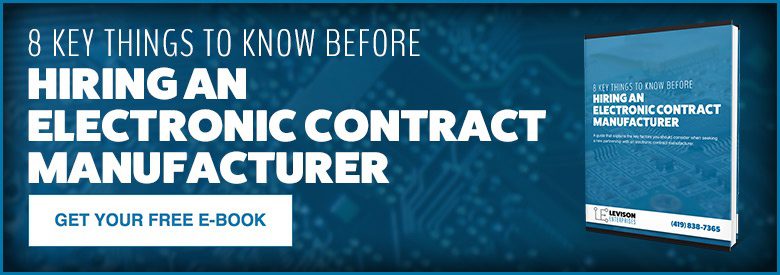How to Avoid Common Pitfalls When Outsourcing PCB Assembly
Outsourcing printed circuit board (PCB) assembly can provide original equipment manufacturers (OEMs) with the flexibility to scale production, leverage specialized processes, and bring products to market more quickly. But it can also come with challenges. Many OEMs discover too late that working with the wrong contract manufacturer introduces problems instead of solving them. A design that looks perfect on paper can become delayed, over budget, or fail testing if the wrong partner is chosen. The good news is that most of these pitfalls are avoidable with careful planning and by selecting a domestic ECM that prioritizes collaboration and quality. Below are some of the most common mistakes OEMs face when outsourcing PCB assembly, along with strategies you can use to avoid them.

Poor Communication Between OEM and ECM
One of the most frequent problems in outsourced PCB assembly is a lack of clear and consistent communication. When expectations aren’t aligned, small details slip through the cracks. This could result in incorrect component substitutions, delays in material procurement, or unexpected changes in production.
The solution is to treat your ECM like an extension of your own engineering team. Keep communication channels open from the first discussion about your project. Provide full design files, bills of materials, and any regulatory requirements early on. Ask how your partner prefers to receive updates and create a rhythm of check-ins throughout the production cycle. An innovative ECM won’t just assemble your boards. They’ll actively look for ways to improve the process and prevent problems.

Unclear Specifications
Even the most capable ECM can only work with the information they are given. Incomplete drawings, vague testing requirements, or missing documentation leave too much room for interpretation. The result can be delays, rework, and added expense.
Instead, make it a priority to deliver complete and accurate specifications. This includes not only schematics and bills of materials but also testing procedures, performance expectations, and any industry standards the product must meet. The more detail you provide, the more confident your ECM can be in producing exactly what you need.
Choosing the Lowest-Cost Vendor
Every OEM is under pressure to control costs, but choosing the cheapest option can backfire quickly. Low-cost providers often cut corners on component sourcing, quality control, or skilled labor. The upfront savings may look appealing, but problems in production, testing, or field performance can drive costs higher in the long run.
It’s better to evaluate potential partners on value rather than price alone. A domestic ECM with a proven record in high-reliability industries may have higher initial costs, but it also brings stability, compliance knowledge, and process controls that protect your product and your reputation.
Delaying Engineering Involvement
Some OEMs hold off on involving their ECM until the design is locked in. While this may seem efficient, it increases risk. Without early engineering input, small design choices can create production headaches later. For example, component placement that appears fine in CAD software may create challenges on the assembly line or limit access to testing.
The more innovative approach is to invite your ECM into the design stage as early as possible. Their engineers can identify potential issues with manufacturability, recommend alternative components that are easier to source, and streamline the production path. This early collaboration can shorten lead times and reduce costs by avoiding redesigns.
Overlooking Regulatory Requirements
OEMs serving industries like aerospace, defense, or medical technology can’t afford to take shortcuts with compliance. Yet some companies make the mistake of assuming every ECM follows the same standards. That’s not the case. An overseas vendor or a shop with limited regulated industry experience may lack the necessary certifications, documentation practices, or quality systems.
When selecting a PCB assembly partner, confirm that they are experienced in your industry and hold the necessary certifications. More importantly, ask how they maintain compliance during the production process. A partner already accustomed to meeting stringent requirements will save you significant time and reduce the risk of costly mistakes.
Inadequate Supply Chain Management
Today’s supply chains are complex, and component shortages can derail even the most well-planned project. If your ECM lacks strong relationships with suppliers or the ability to adapt quickly to sourcing challenges, your timelines may suffer.
Look for a partner with a proven track record of navigating supply chain disruptions. The right ECM will be transparent about lead times, offer options for alternate components when needed, and help you plan for long-term availability.
Treating the Relationship as Transactional
Outsourcing PCB assembly is not a one-time purchase. It works best when treated as a partnership. Some OEMs make the mistake of viewing their ECM as simply a vendor, which limits collaboration and stifles innovation.
The most successful outsourcing relationships are built on mutual trust. When your ECM understands your business goals and product roadmap, it can provide meaningful input that improves both your current and future projects.
How to Avoid These Pitfalls
OEMs can save time, money, and frustration by approaching PCB assembly outsourcing with the right mindset. To recap, here are a few ways to avoid the most common pitfalls:
- Communicate early and often, sharing full specifications and expectations.
- Involve your ECM’s engineers before the design is finalized.
- Choose a partner based on quality, industry experience, and collaboration, not just price.
- Confirm compliance capabilities if your product is in a regulated industry.
- Work with an ECM that manages supply chain challenges proactively.
Why Partnering with the Right ECM Matters
The difference between a smooth outsourcing experience and a stressful one often comes down to the ECM you choose. A domestic partner with proven quality systems and experience across regulated industries can offer far more than assembly services. They provide engineering insight, strong process controls, and supply chain stability to bring your product to market with fewer delays and risks.
When you work with a company that values collaboration and transparency, you’re not just outsourcing a task. You’re getting a partner invested in your success.
Partner With Levison Enterprises
Avoiding outsourcing mistakes starts with choosing the right ECM. Levison Enterprises is a U.S.-based electronic contract manufacturer with extensive experience in PCB assembly for medical, defense, aerospace, and other demanding and highly regulated industries. Our team brings engineering support, rigorous quality standards, and a commitment to collaboration at every stage of the process.
If you’re ready to avoid common pitfalls and build a reliable, long-term manufacturing partnership, contact Levison Enterprises today.
Start Your Quote Now!